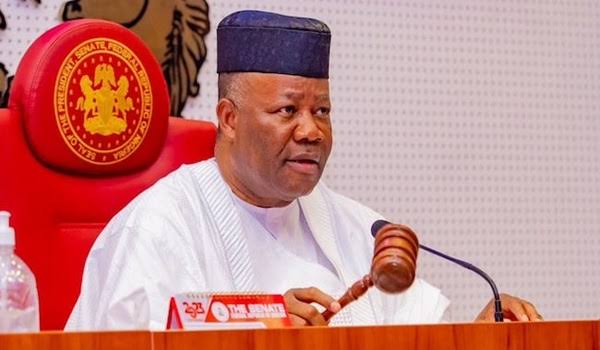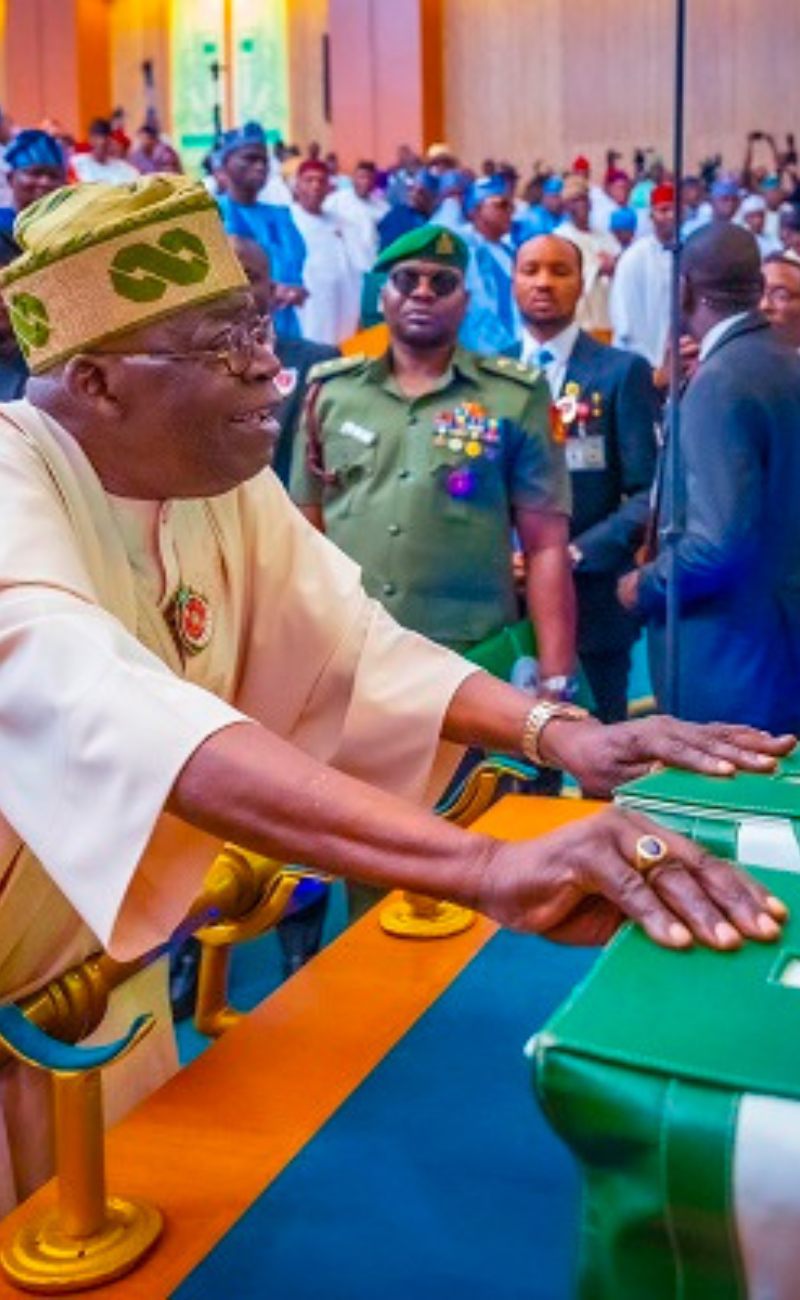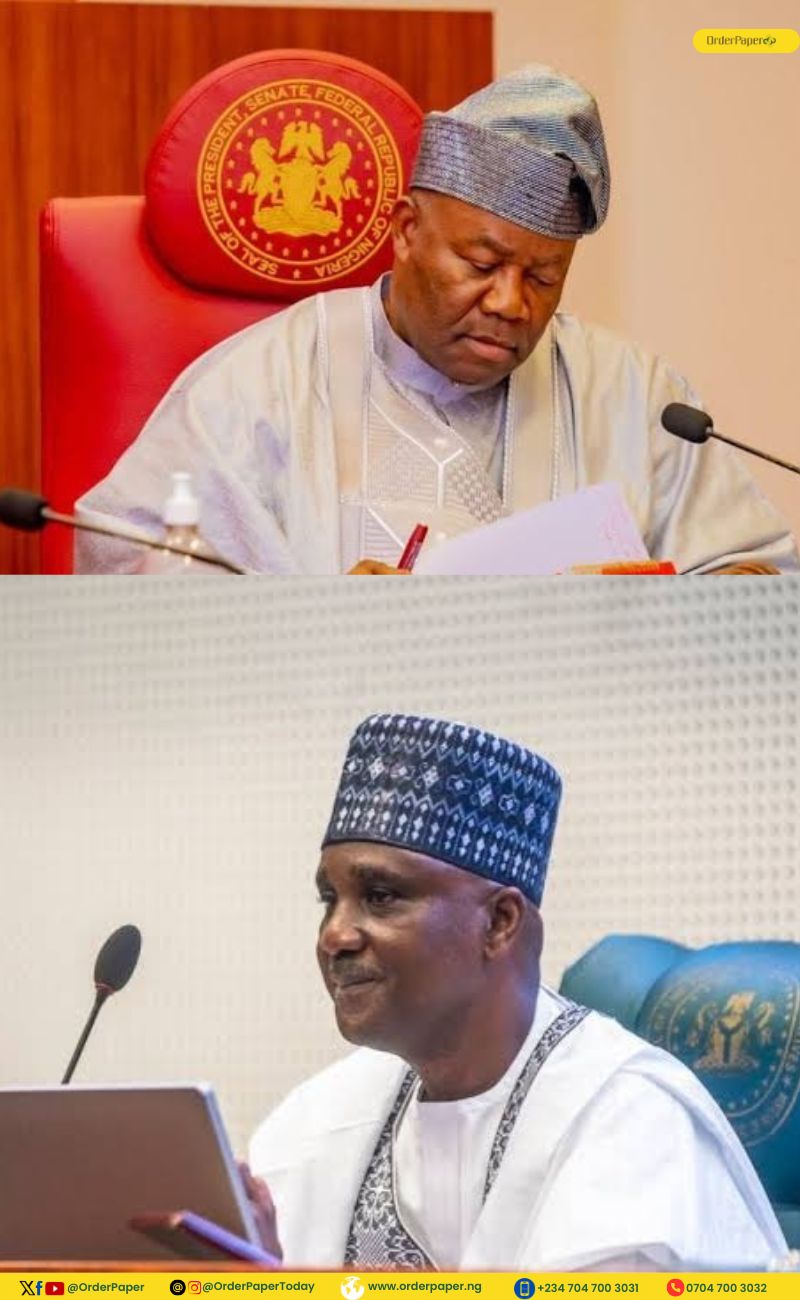All senators present at plenary except Sen. Ali Ndume who kicked against the tax reform proposals on the grounds of timing and lack of wider consultations.

The senate has passed the second reading of four contentious tax reform bills.
The resolution of the senate was sequel to presentation of the lead debate on the general principles of the bills by the Leader of the Senate, Opeyemi Bamidele (APC, Ekiti Central) during Thursday’s plenary.
Prior to debate on the bills, the senators had gone into a closed door session from 11.55am to 12.42pm.
OrderPaper recalls that on October 3rd, 2024, President Bola Tinubu sent four tax bills to the national assembly for approval. They are the Nigeria Tax Bill 2024, the Tax Administration Bill, the Nigeria Revenue Service Establishment Bill, and the Joint Revenue Board Establishment Bill.
President Tinubu said that the bills would provide a clearer and more concise framework for the efficient administration of all tax laws.
OrderPaper also recalls that northern governors, traditional rulers, and the Northern Elders Forum had earlier rejected the bills, saying the proposed bills were not in the interest of the nation.
The senate however during yesterday’s plenary invited President Tinubu’s economic team led by the Chairman of the Presidential Committee on Fiscal Policy and Tax Reforms, Taiwo Oyedele, alongside the Chairman of the Federal Inland Revenue Service (FIRS), Zacch Adedeji and the Director General of the Budget Office, Taminu Yakubu to give details of the bills and brief the lawmakers on the need to pass them.
READ ALSO: ‘Nothing to show for 60 taxes, levies collected’ – Presidential panel
Leading the debate of the bills, Sen. Bamidele noted that the bills are “A Bill for an Act to Establish the Joint Revenue Board, the Tax Appeal Tribunal and the Office of the Tax Ombud, for the harmonization, coordination and settlement of disputes arising from revenue administration in Nigeria and for related matters, 2024 (SB. 583).
“A Bill for an Act to Repeal the Federal Inland Revenue Service (Establishment) Act, No.13, 2007 and enact the Nigeria Revenue Service (Establishment) Act to Establish the Nigeria Revenue Service, charged with powers of assessment, collection of, and accounting for revenue accruable to the Government of the Federation, and for related matters, 2024 (SB. 584).
”A Bill for an Act to Provide for the assessment, collection of, and accounting for revenue accruing to the Federation, Federal, States and Local Governments; prescribe the powers and functions of tax authorities, and for related matters, 2024 (SB. 585)
”A Bill for an Act to Repeal certain Acts on taxation and consolidate the legal frameworks relating to taxation and enact the Nigeria Tax Act to provide for taxation of income, transactions and instruments, and for related matters, 2024 (SB. 586).”
Recalling that they had earlier agreed to reinvite the presidential team in order for members of parliament to have a chance to ask questions where necessary, he urged that they leave the reinvitation for the public hearing after it has been referred to the committee on finance.
He further said, “These bills should be seen as part of the required legislative intervention to support ongoing fiscal and tax-informed measures needed to reposition the Nigerian economy for growth and productivity. The bills should be considered with sense of accuracy and exercise of the powers of the National Assembly under Section 59 of our Constitution regarding the imposition of taxes.”
After the lead debate presentations, many of the senators who made contributions on the bills like Senators Sani Musa (APC, Niger East), Seriake Dickson (PDP, Bayelsa West), Abba Moro (PDP, Benue South) and Senate Whip, Tahir Monguno (APC Borno North) fully supported the bill.
However, Sen. Ali Ndume (APC, Borno South) kicked against the reform bills on the grounds of timing and lack of wider consultations.
He said, “I am not against tax and I am also not against these reforms. My problem is number one, the timing.
“Let it be on record that my problem with the bills, I have said one is the timing. Number two, the issue of derivation made the reform contagious, contaminated, and contradictory in some cases because the constitution has to be amended in order for some of these proposals to be effective.
“As you said, or as the senators decided, we should not throw away the baby in the bath water, I would have preferred we moved the baby and throw away the water first and that is what the governors and NEC proposed that this bill should be withdrawn.
“You withdraw the bill, work on it and then submit it to the national assembly again, after getting the buy-in of the governors and NEC, and even our traditional rulers.
“I looked at the bill and it contains so many good things, but these two things, derivation and VAT, even though you say it will be addressed at the public session, it’s not something that many of us will agree to it. Why don’t we negotiate first before we come out to take a position.
“The tax that looks attractive may not necessarily be that, because if you transfer or you move people from lower income from VAT and then you increase their taxes, the corporate taxes, the person that is manufacturing that goods will now transfer the VAT cost to it. So it means you have it with the right hand and it was taken or is taken by the left hand.
“Secondly, the corporate tax we are talking about, when you remove the lower income, which is good, but then in the bill…If a small person or medium enterprising company makes up to 50 million per year and you are charging me the same percentage with companies that are earning billions and declaring billions of profit.
“If the people through the governors, NEC and then the traditional rulers say that the bill should be withdrawn to make some necessary amendments, let us do it and then bring it back, we can pass it in 24 hours.”
Despite Ndume‘s concerns, the President of the Senate, Godswill Akpabio put the second reading of the bill to a voice vote and the majority voted in support.
The bill was thereafter referred to the committee on finance to organise a public hearing on the bill for inputs from the public including those against the bills like the Nigeria Governors Forum (NGF), National Economic Council (NEC), Northern Elders’ Forum (NEF) and other stakeholders and report back within six weeks.



